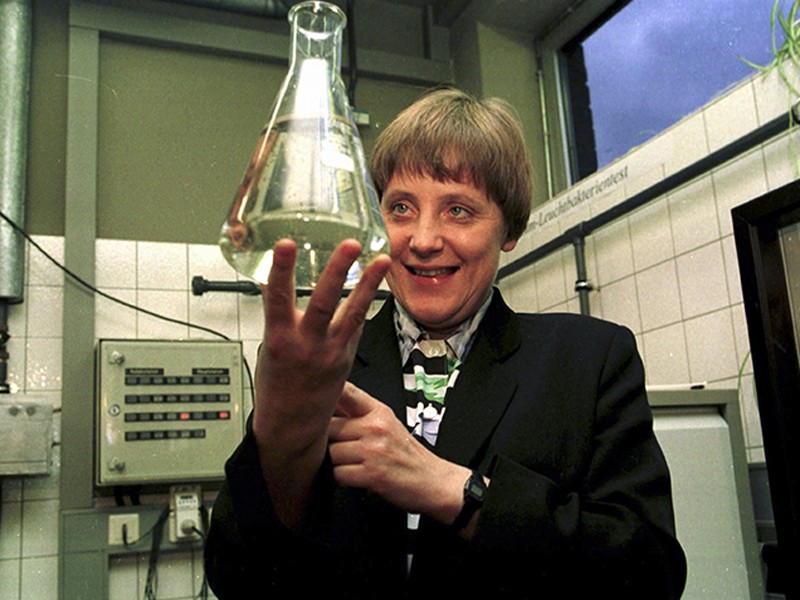Science
Related: About this forumNature Editorial Bemoans the Departure of the Scientist/Politician Merkel, With Some Caveats.
Angela Merkel, who will step down from the role of German Chancellor in less than two weeks, is a highly trained scientist, and holds a Ph.D. in Quantum Chemistry.
This editorial appears in the current issue of the scientific journal Nature: Politics will be poorer without Angela Merkel’s scientific approach
Subtitle: The departing German chancellor’s support for science and rigour in policymaking has proved transformative — except on climate change.
From the text:
Merkel leaves behind a powerful legacy for research and for evidence-based thinking. Over the years, her administration has strengthened and internationalized German science. Every government is imperfect when it comes to protecting peoples’ rights, promoting security and well-being, and administering justice, but Merkel brought compassion and an insistence — unusual among politicians, even in the time of COVID-19 — that decision-making benefits from evidence. All of this will make her a hard act to follow.
The secret to Germany’s scientific excellence
Merkel’s passion for science is spurred, in part, by her grasp of the value scientific research and innovation holds for societies and economies. In interviews with Nature, Germany’s researchers have talked about how, as chancellor, Merkel prioritized regular meetings with working scientists and research managers. Every few months, she presided over informal science soirées focused on different fields. She set the agenda for the sessions, with a particular interest in up-and-coming fields such as hydrogen technology, quantum computing and artificial intelligence.
Researchers were advised to prepare carefully for their presentations at these meetings, because Merkel would be ready with expert-level questions. These ‘innovation’ talks, as they became known, became the nucleus for initiatives such as a 2-billion (US$2.4-billion) programme for quantum computing and related technologies.
But Merkel was just as committed to curiosity-driven research. In a speech to London’s Royal Society in 2010, she urged her audience to be sceptical of politicians who claim to be able to predict the course of scientific discovery.
I added the bold. There has been a lot of politically popular thinking that if we throw enough money at a subject and hire enough high powered scientists the result will be positive. Often the people who make these decisions based on politically popular ideology, for example that the world will run on electric cars powered by wind turbines - an official German policy throughout Merkel's tenure - are defeated by something called reality. This would make Merkel's comments in 2010 somewhat amusing were the consequences not so dire.
The editorial comments on her work as a scientist, before she became a politician:
A picture of Merkel when she was the Minister of the Environment and still a working scientist:

The caption:
However, and this certainly matters to anyone concerned about climate change reality, the reality being that nothing effective is being done to address climate change other than the failed and silly posturing represented by Energiewende.
From the editorial:
Moreover, Merkel’s decision, immediately after the 2011 Fukushima Daiichi nuclear disaster, to phase out nuclear power in Germany by 2022 has made decarbonization even harder to achieve. In April, Germany’s Federal Constitutional Court ordered the government to explain how it will reach its climate targets of cutting emissions by 88% by 2040 and becoming greenhouse-gas neutral by 2045.
Unless Germany reverses the nuclear policy, it and every other nation following this awful lead, will fail miserably to address climate change.
There is one, and only one, form of energy that has the energy density to address climate change without ripping the land to pieces with mines, wires and waste. It is precisely the one Merkel chose to abandon, nuclear energy.
I suspect that for this, history will not forgive her, nor should it.
cstanleytech
(26,224 posts)is the only real option that will meet our power needs while reducing the amount of carbon that is currently being released with coal plants.
NNadir
(33,457 posts)...of that nature.
The things people think they want to rely on are all unimaginably worse.
The reality is that to provide for a decent approach to human rights, energy is an essential.